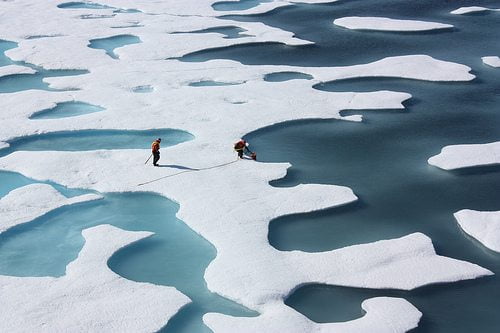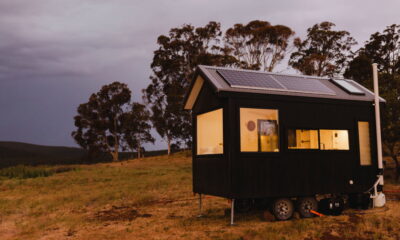

Environment
Study: ponds can reveal how much Arctic ice will melt
The amount of water in ponds that collect on top of ice floes during periods of spring warming can help predict how much the Arctic will melt during the summer, according to new research by the University of Reading.
The team of scientists has predicted that the minimum Arctic ice extent this September will be about 5.4 million sq km, similar to what it was last year. They were able to come to this conclusion by observing the melt-pond area in spring, as they found “a strong correlation between the spring pond fraction and September sea ice extent”.
Researchers explained that this has to do with the albedo, the reflective power of ice.
“More ponds reduce the albedo; a lower albedo causes more melting; more melting increases pond fraction. Our results help explain the acceleration of Arctic sea-ice decrease during the past decade”, the study says.
Prof Daniel Feltham, head of the NERC Centre for Polar Observation and Modelling team at Reading, said, “The sort of three-month prediction we’re making would be useful for people who need to do operations in the Arctic, such as shipping companies for navigation purposes.
“But the physics we’re introducing will also, hopefully, help improve the climate models that look longer term.”
In April, scientists found that the maximum extent of sea ice in the Arctic was lowering, with the melting season lasting five more days.
A separate study published in February revealed that the loss of ice meant that less sun heat was being reflected back into the atmosphere, which was accelerating global warming.
Photo: NASA Goddard Space Flight Center via flickr
Further reading:
Arctic sea ice peak falls to fifth lowest level on record
‘Darker’ Arctic is warming the Earth faster
Arctic sea ice recovers from 2012 record low, but long-term melting trend continues


 Environment12 months ago
Environment12 months agoAre Polymer Banknotes: an Eco-Friendly Trend or a Groundswell?

 Features11 months ago
Features11 months agoEco-Friendly Cryptocurrencies: Sustainable Investment Choices

 Features12 months ago
Features12 months agoEco-Friendly Crypto Traders Must Find the Right Exchange

 Energy11 months ago
Energy11 months agoThe Growing Role of Solar Panels in Ireland’s Energy Future




























